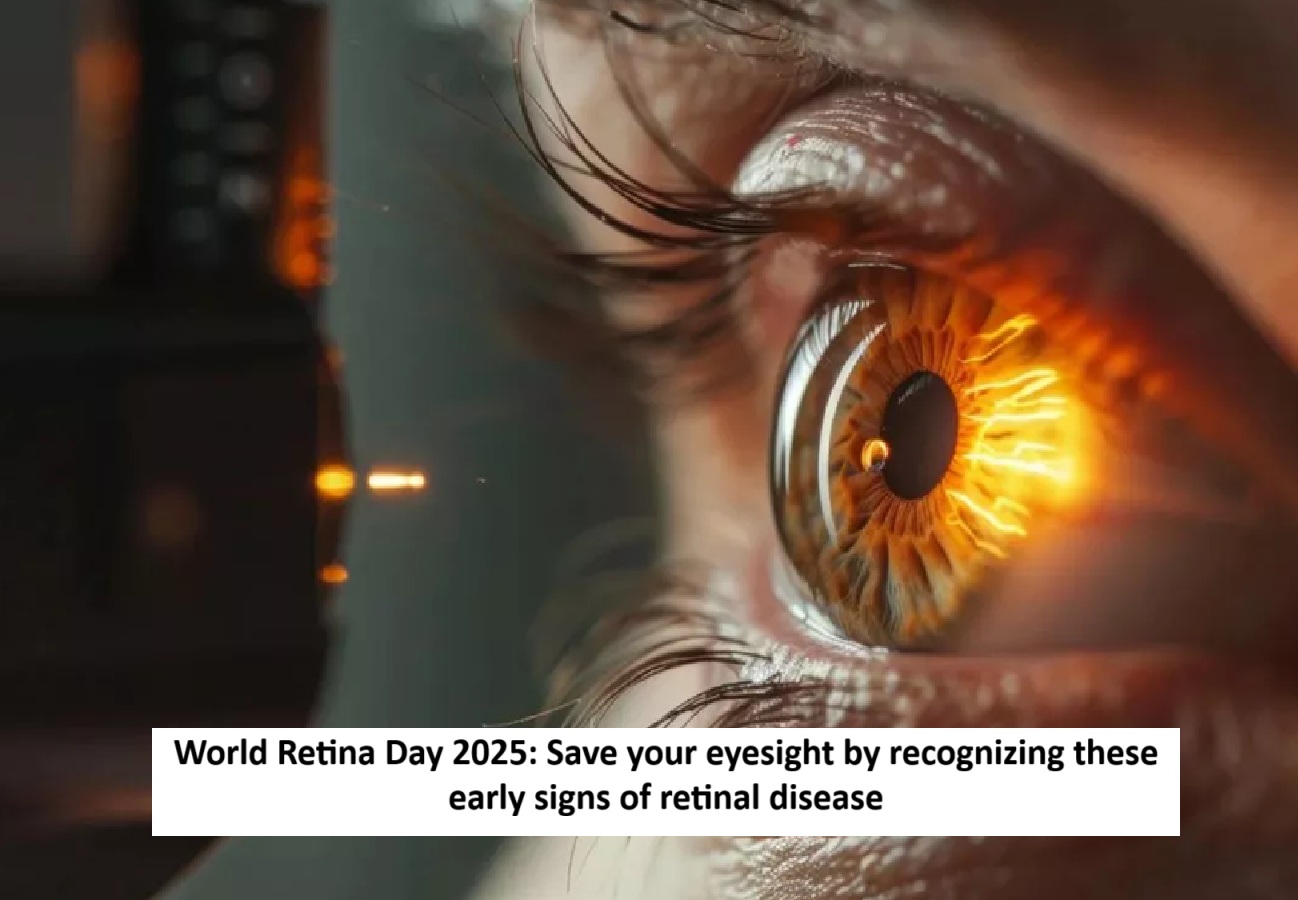
World Retina Day 2025: Eyes are our most precious asset, but serious diseases often silently damage them. Certain retinal problems, in particular, can gradually weaken vision and, if not treated promptly, can lead to permanent blindness. This is why it's crucial to understand these diseases and recognize their early signs.
What is the retina?
The retina is a thin membrane at the back of the eye that detects light and transmits signals to the brain. This is why, when the retina is affected, clear vision is reduced and blurred or distorted vision occurs.
Retinal diseases
Retinal Tear and Detachment
When the vitreous, a gel-like substance inside the eye, pulls on the retina, it can tear. If fluid leaks through this tear, the retina can dislodge. This is called retinal detachment, which can lead to permanent blindness if not treated promptly.
Age-related macular degeneration (AMD)
This disease affects the macula, the central part of the retina. The macula is what gives us fine and clear vision. There are two types:
- Dry AMD: The retinal cells gradually weaken.
- Wet AMD: Abnormal blood vessels form in the eye, causing rapid vision loss.
Diabetic Retinopathy
Chronically high sugar levels damage the blood vessels in the retina. They leak blood or fluid, causing blurred vision. If this problem spreads to the macula, it's called diabetic macular edema.
epiretinal membrane
Sometimes a thin film or scar tissue forms on the surface of the retina, stretching the retina and making vision feel like looking through a wrinkled mirror.
macular hole
A small hole forms in the macula, the center of the retina, making it difficult to see clearly and clearly.
retinitis pigmentosa
This is a genetic disease in which retinal cells gradually degenerate. Night blindness first occurs, and later, side vision also becomes affected.
Do not ignore the initial symptoms
Retinal diseases often progress painlessly, but some early signs can help identify the danger:
- Seeing floating spots or flashes of light before your eyes
- blurred or distorted vision
- Sudden darkness or shadows in some area
- Trouble seeing at night
As soon as such symptoms appear, one should immediately contact an eye specialist, otherwise if it is delayed, it may be difficult to regain vision.
Modern treatment options
Today, there are several effective methods of treating retinal diseases:
- Anti-VEGF injections: Block the growth of abnormal blood vessels.
- Laser treatment: Helps seal leaking blood vessels and prevent retinal tears.
- Cryotherapy: The retinal tear is frozen with cold temperatures.
- Vitrectomy surgery: Removing the gel-like substance in the eye to remove bleeding or membranes.
- Macular hole surgery: The hole is closed and the retina is restored to normal position.
Retinal diseases are a silent threat to the eyes, capable of causing painless vision loss. Therefore, regular eye exams, recognizing early symptoms, and seeking timely treatment are crucial. Remember, only awareness and vigilance can preserve vision for the long term.
--Advertisement--

 Share
Share



